‘Legend’ is a word thrown around all too often in this day and age, but the term encapsulates the reign of the Mapogo lions in the Sabi Sands (Greater Kruger) to perfection. For the last six years or so, this notorious band of brothers has ruled the area with an iron paw. They are true warriors and have proved themselves time after time on the field of battle. During their prime, 6 of these magnificent specimens patrolled their territory, dispatching all competitors and striking fear into the hearts of all that found themselves in their way.
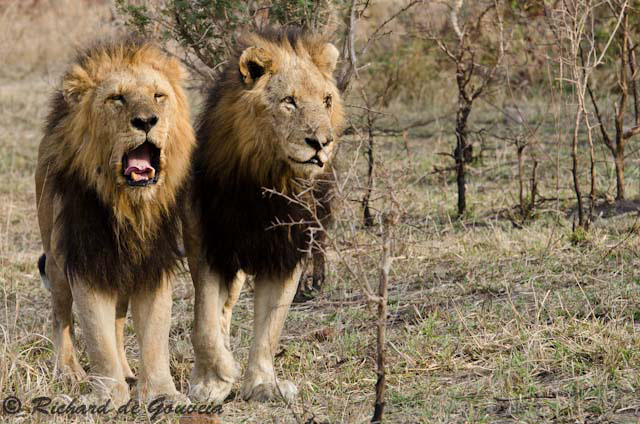
Legend has it that the Mapogo lions were responsible for killing numerous males, females and cubs as they stamped their authority on their domain. Whole prides have been wiped out in their relentless march for dominance, and challengers have been eaten as acts of defiance. A former warden of the Sabi Sands has been cited saying that he believes them accountable for over 100 lion fatalities, although the true number will probably never be known. Never before has the local lion population been so dominated, and it is stories like this that have elevated their exploits to legendary status.
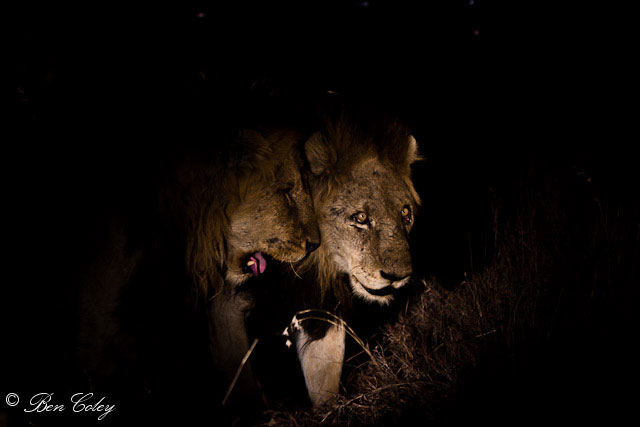
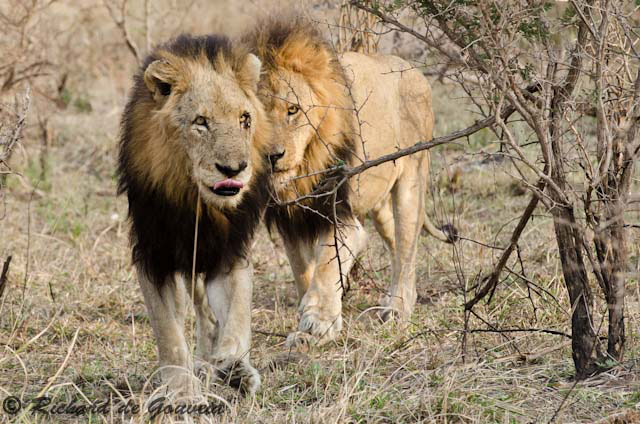
These pride brothers may have a fearsome reputation, but in the world of the lion, they should be seen as the epitomes of what a successful coalition should be. The Mapogo lions have been labelled as sadistic and remorseless, to mention only a few adjectives assigned to them, and yet their exploits have ensured safe breeding grounds and stability in an area of unusually high competition. Their success has changed the dynamic of the lion population in this area forever, and it is no surprise that litters are becoming skewed in favour of male offspring. This is inevitable as nature attempts to balance the scales and provide a more level playing field.
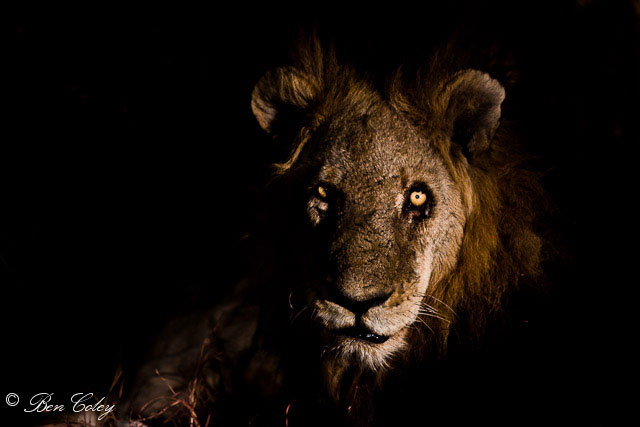
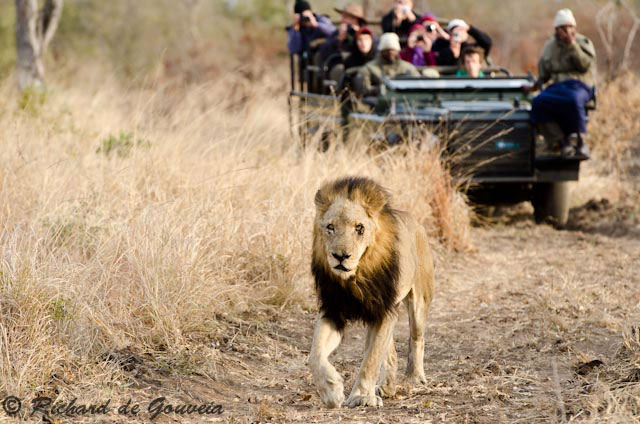
In recent years, new and equally formidable coalitions have been responsible for whittling down the Mapogo’s numbers as territorial lines were drawn in the sand and crossed, and repeated battles were waged. The Majingilanes in the north and the Southern Pride males in the south have both had their say in shaping the new regime and now all that remains of the mighty Mapogo are two ageing specimens known as Makhulu and Pretty Boy.

Since being overthrown by the Southern Pride males, the last of the Mapogo lions legends have been sighted regularly on Sabi Sabi as they search for new territory or maybe just sanctuary as they live out the remainder of their days. At 14 and 11 years of age, they have surpassed the life expectancy of most male lions and carry the scars of years of conflict on the front line.
During my six years of working in the bushveld, I have been privileged to view and come into close contact with many different lions from different areas of South Africa and Tanzania, but I can honestly say that I have never witnessed such magnificent specimens as these two remaining legends. Perhaps the stigma attached to them accentuates their aura, but they are the most intimidating lions I have laid eyes upon. It is not merely their freakish size and musculature that raises the adrenaline levels and starts the heart pounding, but the look contained deep within their eyes.
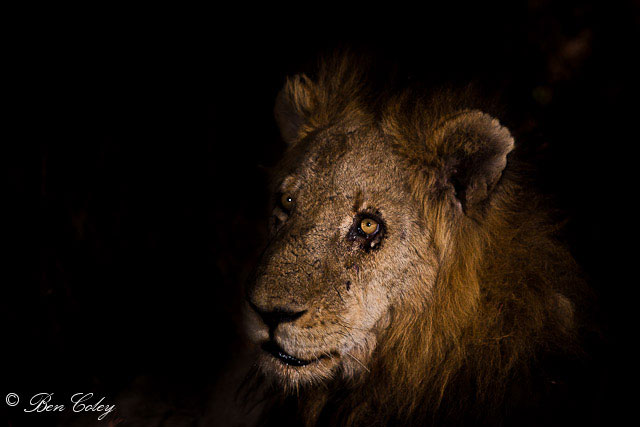
Peering into those yellow abysses, one can truly feel the history and experience of many a hard-fought battle in which the deciding factor was power and a will to survive. Their eyes bore through you like no other lions I have ever seen, and I refuse to believe anyone who claims not to feel a slight pang of uncertainty when they stare back at you. The uneasiness of their presence is something that I have never felt before when watching the Kruger males. For fear of downplaying the current kings of Sabi Sabi, the last of the Mapogo make them look like kittens.
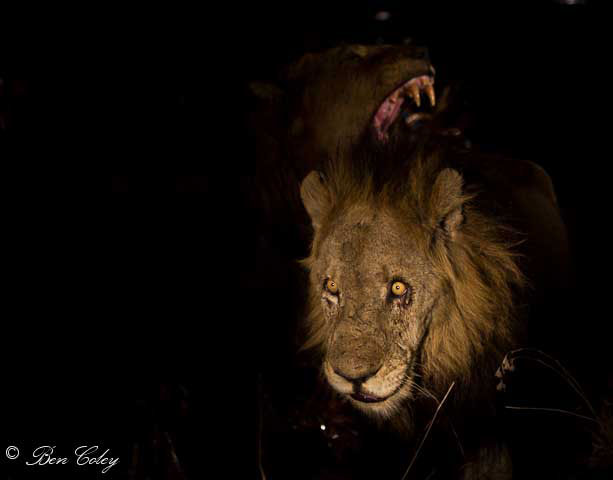
It is hard not to paint the Mapogos as terrifying, evil beasts due to the wrath they have rained down on the area, but I hope they are remembered as great rulers and protectors. They have raised the bar as to the expectations of male coalitions in so far as protecting territory and ensuring their genetic success. They should be seen as role models, not killers.
In conclusion, legendary status is hard to achieve, but ask anyone who has worked in the Sabi Sands for the last seven years, and they will tell you tales of the Mapogo. Sadistic tyrants or protective fathers? Both could be claimed true, but the fact is that their arrival heralded a new age of the lion population in the Sabi Sands. Love them or hate them; their exploits will never be forgotten. These tales will undoubtedly be embellished and exaggerated, but this is how great icons are born. Over time, these stories will become myths, and myths will become legends: a fitting legacy for the most famous lions of the modern era.
 Find out about the Greater Kruger for your next African safari. You can choose a ready-made safari or ask us to build one just for you.
Find out about the Greater Kruger for your next African safari. You can choose a ready-made safari or ask us to build one just for you.
To comment on this story: Login (or sign up) to our app here - it's a troll-free safe place 🙂.![]()






